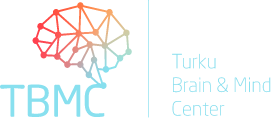Introducing Harri Merisaari: Adjunct Professor at the Department of Diagnostic Radiology
Leading the Brain Big Data Research
With a strong background in computer science and medical imaging analysis, Adjunct Professor Harri Merisaari has recently joined Turku Brain and Mind Center to lead a groundbreaking initiative in brain research and big data processing. He is also the director of the Magnetic Resonance Imaging Research Center (MRC), where he and his team develop new methods for processing and analyzing different Magnetic Resonance Imaging (MRI) data.
Background and Early Career
Harri’s journey into medical imaging began during his master’s thesis at the Turku PET Centre, where he focused on partial volume correction for PET images. This initial project raised his interest in the field, leading him to pursue a PhD in the same area.
“Originally, my background was in computer science. My first steps into medical imaging started when I did my master’s thesis on partial volume correction software. I then continued my PhD, initially focusing on heart studies but later shifted to prostate MRI and eventually brain MRI.”
Over the years, Harri has worked on various projects. His research involves analyzing several types of MRI data, including structural MRI (sMRI) and diffusion tensor imaging (DTI). He is also involved in functional MRI (fMRI) studies through the FinnBrain Birth Cohort project although his main focus is on anatomical images.
Big Data and Brain MRI Research
At TBMC, Harri will be responsible for the research activities of the center and for processing large amounts of brain data. One of his key initiatives is the development of Turku BrainBank—a service that aims to collect and process open-access datasets for researchers.
“We have collected a bunch of open-access datasets, and we have the license that allows us to process them in supercluster computers without extra permissions, which makes research much easier.”
Currently, the BrainBank holds an estimated 30,000 subsets of different open-access datasets, with around 20,000 subjects already available for research. “The BrainBank is not just a data repository. It is a resource for advancing medical imaging techniques. We are focusing on medical image analysis methods to improve these techniques for clinical use and scientific research. The data collected will be used to study a wide range of conditions, including traumatic brain injury, oncology, psychological disorders, and Alzheimer’s disease.”
A Focus on Imaging Biomarkers
Harri’s research will also focus on the development of imaging biomarkers. “I’m focusing more on the methods rather than specific applications. I take all the data, process it, and analyze which techniques can be used for different diseases. This approach allows developing imaging biomarkers that can be applied across various conditions, rather than focusing on a single disease.”
One of the key datasets Harri is working with is the Alzheimer’s Disease Neuroimaging Initiative (ADNI), which includes data from thousands of subjects. “We have downloaded and processed the ADNI dataset multiple times using different methods. We are studying imaging biomarkers that could predict the conversion or progression of Alzheimer’s disease.”
Harri’s work on imaging biomarkers is not limited to Alzheimer’s disease. He is also exploring how these biomarkers can be applied to other conditions, such as traumatic brain injury and psychological disorders. “The goal is to provide researchers with data on different biomarkers. This way, neuroscientists don’t need to go through the complexities of medical imaging processing. They can focus on their research without needing extensive computer science skills.”
In addition to the Turku BrainBank, Harri is involved in other critical projects, including the IMAGEN Turku project, headed by Associate Professor Noora Scheinin, which studies the relationship between depression and Alzheimer’s disease.
The Future of Brain Research at TBMC
As Harri is starting his new role at TBMC, more research outcomes are expected to be produced in the future. The collected datasets have already been used in several studies, with more expected to follow. “We have started a few studies, and more are to come this year.”
Harri also provides consultation services to researchers and students working in medical imaging. He provides expert consultation for neuroscience students and researchers facing practical challenges in medical image post-processing for their research projects. You can book a remote or in-person meeting with Harri from this page.

